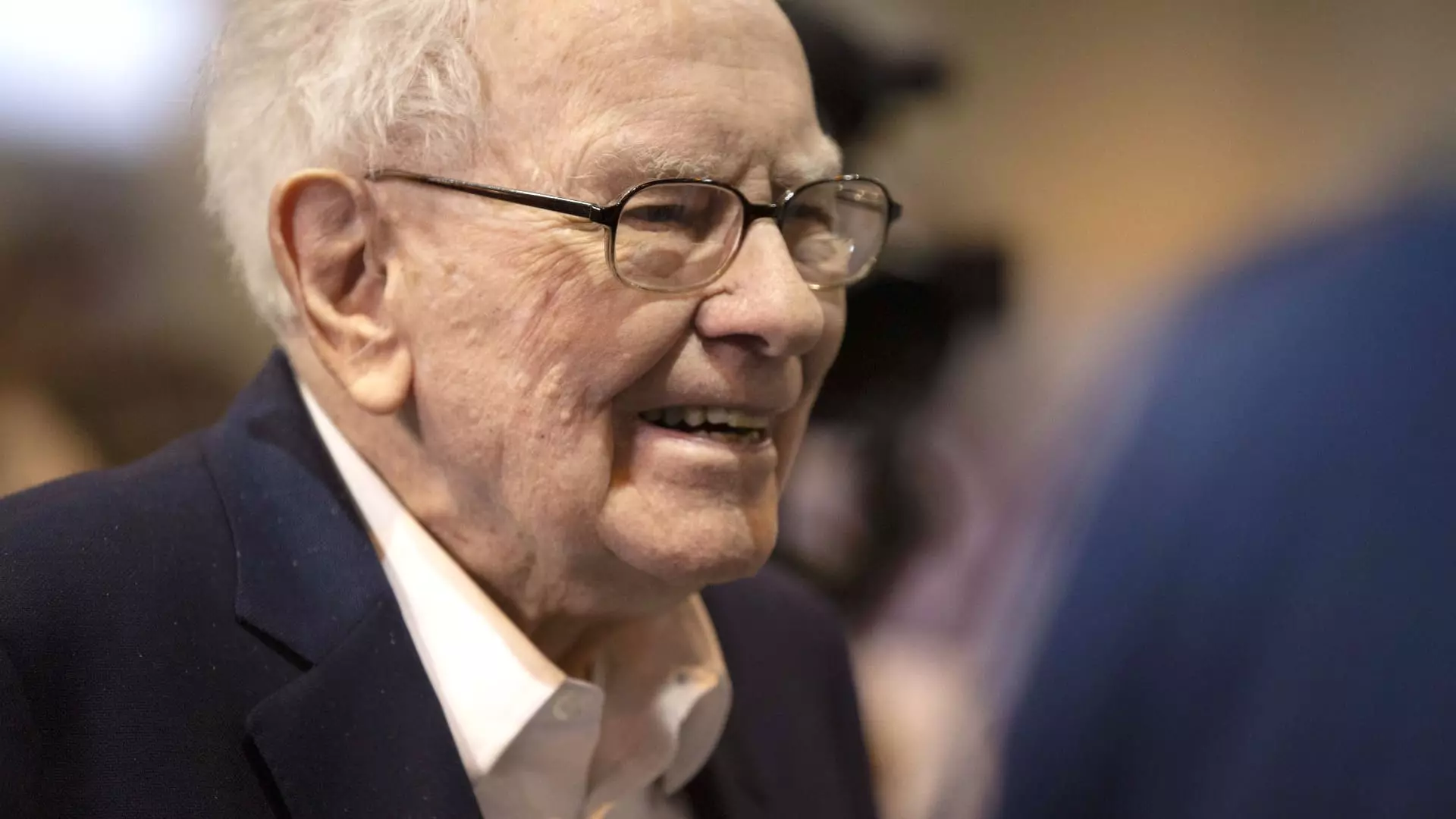Warren Buffett, the venerable CEO of Berkshire Hathaway, continues to baffle market watchers with his recent investment strategy, which leans towards extraordinary caution rather than the aggressive equity investments that defined his decades-long career. As the revered investor celebrates his 94th year, the iconic figure’s decision to sell significant portions of stock while amassing an unprecedented cash reserve of $334 billion has raised questions about his outlook on the market and future stock opportunities. In this article, we will explore the implications of Buffett’s actions and the potential reasoning behind his surprising defensive posture.
Buffett’s latest annual letter has stirred up a whirlwind of speculation. With Berkshire Hathaway net selling equities for the ninth consecutive quarter, the sale of over $134 billion in stocks, particularly notable positions in Apple and Bank of America, has left shareholders puzzled. Despite being a renowned champion of equities, his current strategy reflects a stark reality; the stock market does not hold the allure it once did for the “Oracle of Omaha.” This dramatic shift raises pivotal questions: Are we witnessing a fundamental change in Buffett’s investment philosophy, or is this a temporary retreat due to market conditions?
One cannot help but ponder the significance of Buffett’s colossal cash reserve amidst the looming expectations of declining interest rates. These circumstances suggest a potential shift toward risk aversion, a sentiment echoed by the broader market atmosphere characterized by tightening economic conditions and heightened stock valuations. Buffett’s own admissions about the lack of compelling investment opportunities are particularly revealing. His comments suggest that he is grappling with a market that seems overvalued, leading him to prioritize liquidity over traditional stock ownership.
In his annual missive, Buffett attempted to allay the concerns of shareholders by confirming his unyielding dedication to equities. He expressed that a vast majority of the capital will remain invested in stocks, predominantly American businesses, stating, “Berkshire will never prefer ownership of cash-equivalent assets over the ownership of good businesses.” Yet, with such a significant cash hoard, there is a stark contradiction between rhetoric and action.
Clearly, shareholders are grappling with the implications of Buffett’s decisions. While he reassures them of his commitment to equities, continued sales of shares spark concern about the underlying health of the companies Berkshire Hathaway owns. This inconsistency could lead investors to question Buffett’s confidence in his own stock picks, stirring doubts in an overall climate of apprehension.
Another crucial aspect of Buffett’s recent maneuvers may be attributed to the gradual transition of power within Berkshire Hathaway. Buffett’s endorsement of Greg Abel as his successor hints at a period of preparation for future leadership. Some analysts propose that Buffett’s current cautious stance is less about the market cycle and more about strategically preparing the company’s portfolio for Abel’s stewardship.
Abel, who has shown impressive capabilities in identifying fruitful investment opportunities, is now tasked with navigating Berkshire’s investments as Buffett prepares to hand the reins. As Buffett himself suggested, the goal could very well be to consolidate cash and reshape the portfolio to enable a more agile approach under Abel’s guidance when the market becomes favorable once again.
Buffett’s ongoing commentary on stock valuations and market volatility serves as a hint that he remains acutely aware of the potential dangers that lie ahead. While his historical track record is filled with triumphant equity decisions, the current economic landscape is fraught with uncertainty, driven by rapid policy changes and fluctuating market conditions. As volatility continues to rear its head, Buffett’s defensive measures resonate as prudent rather than reckless.
In closing, Warren Buffett’s affinity for equities is undiminished, yet the considerable cash reserves signal a strategic wait-and-watch approach amidst an unpredictable market. The question remains whether this caution will ultimately bear fruit or whether it stifles Berkshire Hathaway’s potential for growth. As investors await further developments, they must grapple with the uncertainty of a man who not only shaped the investment world but also continues to redefine his legacy in unconventional times. The coming months may reveal whether this enigmatic approach pays off in the long run or marks a significant shift in the investment philosophy of one of history’s greatest investors.

